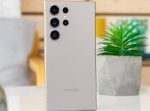Business Insider España / Miguel Ángel Moreno
- Electric car charger manufacturer Wallbox has just opened a new factory in Barcelona.
- It currently produces 1,200 chargers per day and has the capacity to produce 750,000 per year.
- Insider got a look inside the new factory.
This is an edited, translated version of an article that originally appeared on April 23, 2022.
Wallbox, a Spanish startup that builds electric-car chargers, was listed on the New York Stock Exchange in 2021 after the company exceeded 400 shareholders and 1.1 million shares outstanding.
Wallbox has invested 9 million euros in a new factory in Barcelona, which opened on April 20. The company said it expects the site will employ more than 500 people.
The new factory will supply the European, South American, and Asian markets – except China, where the company already has a plant in Suzhou. The company is set to open another factory in Arlington, Texas, to supply the US and Canadian markets.
Wallbox gave Insider a tour of the new factory and its operations.
The factory is divided into three areas: validation, production, and logistics
Wallbox will have the capacity to produce more than 750,000 chargers a year, according to a company press release.
“The charger market is very volatile, so we have to be flexible,” David Padillo, the logistics manager, told Insider during the tour.
Miguel Ángel Moreno / BI España
Each operator has a screen that shows them a step-by-step breakdown of the procedure on their part of the production line.
The production line is also equipped with cameras which detect whether the different-colored wires are properly assembled. An operator has to complete their part of the procedure in 46 seconds, before moving on to the next charger. It takes a total of eight minutes to assemble each charger.
Once the process is finished, operators place each charger in a box and a 23-page report on its assembly is generated and stored at the factory. This report is “the medical history of the charger, with the components it carries, the tightening torque, and the results of the electrical and connectivity tests. So if a user registers the charger and has a problem, we know everything,” one of the employees conducting the tour told Insider.
Miguel Ángel Moreno / BI España
The Supernova public charger takes slightly longer to finish building due to its size and weight. Each charger weighs 551.2 pounds and takes approximately 22 minutes to build.
Manolito and Joselito
Manolito and Joselito are the names of the robotic arms in charge of two of the key tasks in the factory.
Miguel Ángel Moreno / BI España
Manolito is in charge of etching circuit boards for the chargers: “He etches about 800 circuits per shift by himself; one person would be able to do 200,” said the employee running the tour.
Joselito is located at the end of the production chain.
Joselito checks that the chargers are connected properly by photographing the charger parts and comparing them with a standard model to identify possible errors.
Miguel Ángel Moreno / BI España
Wallbox is also preparing to open an automated warehouse, capable of receiving items directly from the production line and storing around 43,000 chargers, Enric Asunción, the CEO of Wallbox, said.
When it’s operational, the warehouse will receive 360 chargers every hour. “They’ll arrive directly from the production line, untouched by humans,” said Padillo.
The goal for this warehouse is that it will be able to deliver chargers anywhere in the world within 72 hours, which Padillo said is one of the company’s key performance indicators.
A sustainable factory
When asked about the sustainability of the factory, Asunción’s face lit up.
Wallbox
He said that Wallbox aims to produce as little waste as possible by recycling and reusing materials. The company intends to install 4,500 square meters of solar panels that will supply 900 kilowatts of energy to the factory, which would account for between 30% and 60% of the energy required to make chargers, according to the company’s press release.
“The problem with the panels is that we’re not always going to be using the energy they produce. So we’ve put in a stationary battery that charges from this energy, and all our employees’ cars and a carsharing base are going to be charged with this,” Asunción told Insider.
“When there’s no solar power, those cars will dump the excess energy into the building.”
Wallbox uses Sirius software, an energy-management system, to integrate and manage all its energy sources.
“Sirius is designed to autonomously decide at any given moment which is the best source of energy — depending on the needs at that precise moment but also on the price of electricity,” the press release said.
Miguel Ángel Moreno / BI España
Asunción estimated that the software would reduce the factory’s energy usage by around 20%. But he added the ultimate goal was that the factory becomes self-sufficient.
Powered by WPeMatico






